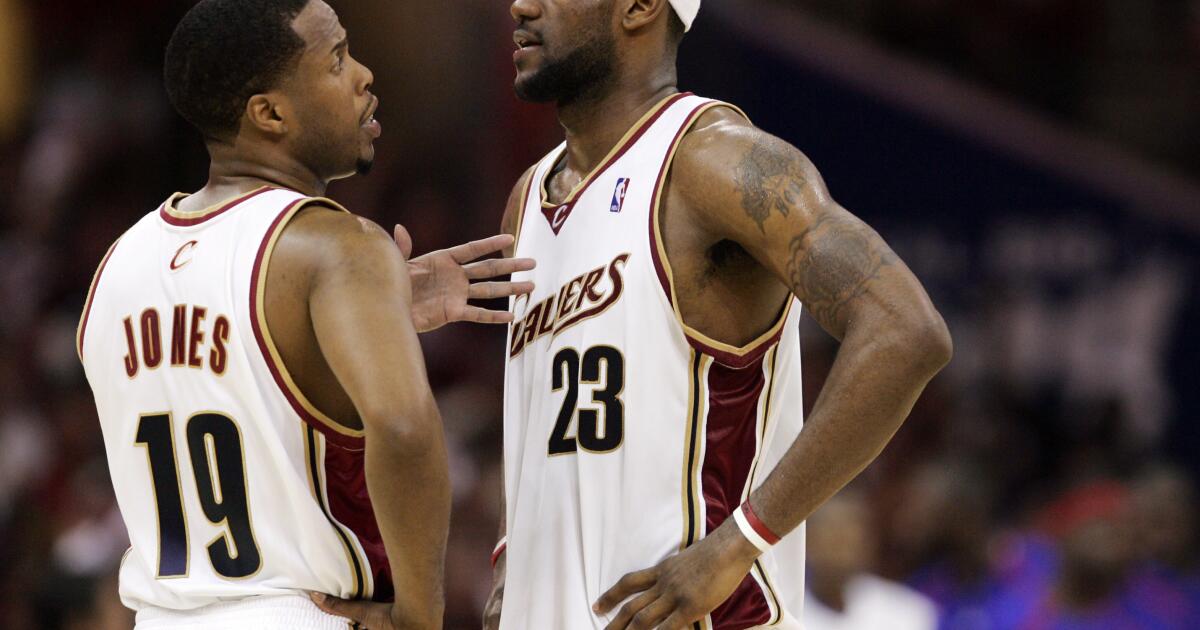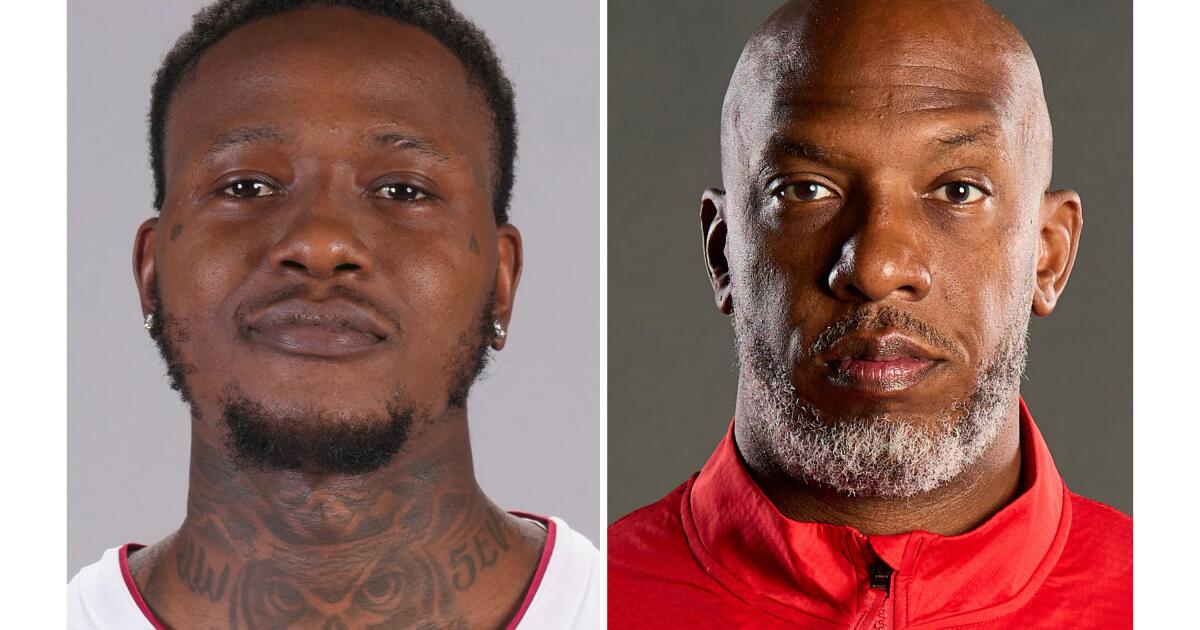Column: Given the NBA’s woes, the NCAA should go back to banning bets
The NCAA picked a hell of a week to get into the gambling business, didn’t it?
Within 24 hours of approving a rule change that will allow student athletes and athletic department staff to bet only on professional sports, the FBI arrested more than 30 people in connection with a major sports gambling and betting scheme. The level of sophistication alleged in one 22-page indictment reads like an “Ocean’s Eleven” script with four New York Mafia families, a current NBA player and a head coach all allegedly involved.
For Adam Silver, commissioner of the NBA, the news and arrests are a public relations nightmare.
But for the NCAA, it’s a warning.
Since a 2018 Supreme Court ruling paved the way for sports betting, more than 35 states have legalized it, so I understand why the industry no longer feels dirty. But the governing body for more than half a million young athletes must remember nothing will ever sanitize that industry.
A century ago, the Black Sox scandal nearly destroyed baseball in America. Fast forward a hundred years and we find out 16 professional tennis players — including a U.S. Open champion — were fixing matches for gambling syndicates in Russia and Italy. In between, Pete “Charlie Hustle” Rose received a lifetime ban for betting on baseball games as a manager and Tim Donaghy, an NBA referee, is busted for betting on games. Last year, former NBA player Jontay Porter was found to have placed several bets on games using another person’s account. We call him “former” because the league banned him for life.
So, if NCAA officials believe it is too cumbersome to enforce its current gambling ban (it is investigating multiple violations across several schools), imagine what life inside the organization would be like without some sort of deterrent.
In fact, no imagination is required. Just read the indictment filed by the U.S. District Court for the Eastern District of New York. The FBI alleges the gambling scheme began in 2019, operated across 11 states and involved crime families with origins that date back more than a century.
According to documents, hidden cameras, programmable card shuffling machines and X-ray tables were among the pieces of technology used to steal tens of millions from victims during rigged poker games. Those allegedly involved in the scheme included Chauncey Billups — a Hall of Fame player and head coach of the Portland Trailblazers. Authorities said Billups, who led the Detroit Pistons to the 2004 championship, used his celebrity to lure in victims. In addition, the FBI said Damon Jones, a former player and assistant coach for the Lakers, shared inside information about the health of LeBron James with betters back in 2023. Terry Rozier, an active NBA player on a $100-million contract, was also arrested.
Now consider this: There are roughly 40,000 young men and women who play NCAA basketball and about 8,000 head and assistant coaches leading teams. How confident are you that March Madness won’t take on a different meaning if coaches and players are allowed to bet on games and find themselves underwater? A recent UC San Diego study found internet searches seeking help with gambling addiction increased 23% between 2018 and June 2024.
And while it’s true, the new rule maintains a ban against student athletes and coaches betting on college sports — so there are some guardrails against fixing games — but tilting outcomes is only one possible harm from gambling. The International Tennis Federation found that angry gamblers accounted for 40% of social media attacks aimed at players, with several threats credible enough to be submitted to the FBI. And there is already evidence that college students who aren’t athletes are using student loan money to place bets, and a 2023 NCAA survey found that 14% of U.S. 18- to 22-year-olds bet at least a few times a week.
Another 16% use a bookie.
I repeat: a bookie.
This just feels like a tragedy we can all see coming.
And we’re to believe the NCAA will be equipped to protect student athletes from predators when the Mafia is said to be using professional athletes and X-ray machines to steal from card players who are supposed to know better? The decision-making process for the human brain isn’t fully developed until a person is 25, and the NCAA just voted to let 18-year-olds with “name, image, likeness” money go in the deep water with sharks.
Given what just unfolded in the NBA this week the responsible move for the NCAA would be to pause the rule change — which is to take effect Nov. 1 — and reassess the risks. It’s one thing for sports gambling to cost a pro athlete to lose his career. It would be worse to see addiction or debt obligations steal a young person’s future before it begins.
YouTube: @LZGrandersonShow

